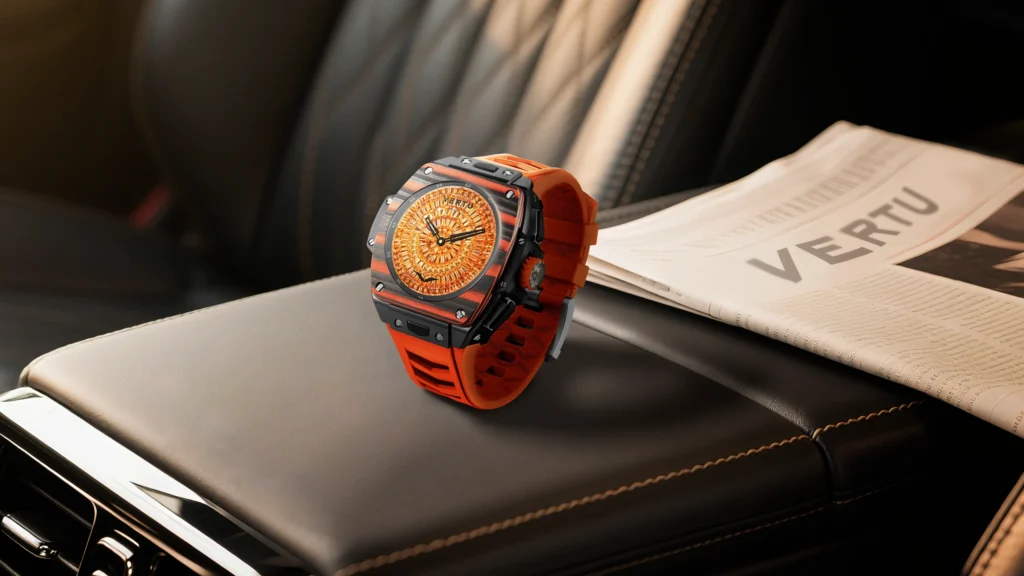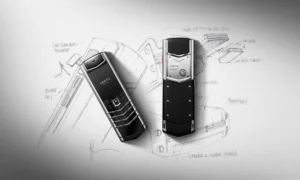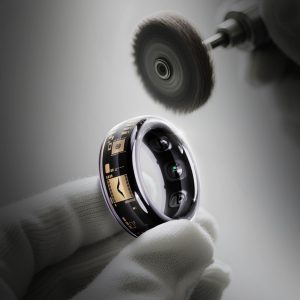Are you overwhelmed by health jargon and struggling to make sense of your body's signals? Imagine having a personal wellness coach on your wrist, deciphering your health data and guiding you to a healthier life.
What You'll Learn:
- The essential features that define a wellness smartwatch in 2025.
- Key factors to consider when selecting the right smartwatch for your needs.
- Top smartwatch recommendations tailored to specific wellness goals.
- How to effectively interpret and leverage your smartwatch data for tangible health improvements.
Understanding Smartwatches for Wellness in 2025
The landscape of wearable technology has dramatically evolved, with smartwatches now serving as powerful tools for proactive health management. In 2025, these devices are more sophisticated and integrated into our daily lives than ever before, offering a holistic view of our well-being.
What Exactly is a Wellness Smartwatch?
A wellness smartwatch is more than just a timekeeper or a notification hub. It's a personal health monitoring device designed to track, analyze, and provide insights into various aspects of your physical and mental health. These devices leverage advanced sensors and algorithms to collect data, helping you understand your body's patterns and make informed decisions about your lifestyle.
“The modern smartwatch is becoming an indispensable part of a preventative healthcare strategy, empowering individuals with real-time data about their own physiology.”
Core Health & Fitness Tracking Features You Need
When looking for a wellness smartwatch, certain features are non-negotiable for comprehensive health tracking:
- Activity Tracking: Steps, distance, calories burned, and active minutes.
- Heart Rate Monitoring: Continuous and on-demand heart rate tracking, including resting heart rate and heart rate zones during exercise.
- Sleep Tracking: Detailed analysis of sleep stages (light, deep, REM), duration, and quality.
- Workout Modes: Specific tracking for various activities like running, cycling, swimming, yoga, and strength training.
- GPS Tracking: For accurate distance and pace recording during outdoor activities.
Beyond Steps: Advanced Metrics Explained (HRV, SpO2, ECG)
In 2025, the most advanced wellness smartwatches go far beyond basic step counting. They offer deeper physiological insights:
- Heart Rate Variability (HRV): This measures the variation in time between heartbeats. A higher HRV often indicates better stress resilience and recovery. Tracking HRV can help you understand your body's readiness for training and manage stress effectively.
- Blood Oxygen Saturation (SpO2): SpO2 sensors measure the oxygen level in your blood. This can be crucial for understanding respiratory health, altitude acclimatization, and sleep quality.
- Electrocardiogram (ECG): Some high-end smartwatches can take an on-demand ECG reading, similar to a medical device. This can help detect potential irregularities like atrial fibrillation (AFib), providing valuable early warnings.
Choosing Your Perfect 2025 Wellness Smartwatch: Key Considerations
Selecting the right smartwatch involves evaluating several factors to ensure it aligns with your lifestyle and health objectives.
Compatibility: Syncing with Your Devices (iOS vs. Android)
Ensure the smartwatch you choose is fully compatible with your smartphone. Most smartwatches work seamlessly with both iOS and Android, but some may offer a more integrated experience within their respective ecosystems. Check app store compatibility and the availability of essential features on your operating system.
Battery Life: Powering Your 2025 Health Journey
Battery life is a critical factor, especially if you plan to use advanced tracking features like continuous GPS or SpO2 monitoring.
- Daily Use: Many smartwatches require daily charging.
- Multi-Day Use: Some devices can last 3-7 days or even longer on a single charge, which is ideal for uninterrupted sleep tracking or multi-day events.
Consider how often you're willing to charge and prioritize devices that meet your usage needs.
Durability and Design: Finding the Right Fit for Your Lifestyle
Your smartwatch will be with you 24/7, so durability and design are paramount.
- Materials: Look for robust materials like stainless steel, titanium, or reinforced plastic.
- Water Resistance: Essential if you plan to swim or engage in water sports.
- Comfort: The watch should be comfortable to wear all day and night, especially during sleep.
- Aesthetics: Choose a design that complements your personal style, whether it's sporty, minimalist, or classic.
Budgeting for Your Wellness Goals
Smartwatches range widely in price. Determine your budget and prioritize features accordingly.
- Entry-Level: Offer basic fitness tracking and smart notifications.
- Mid-Range: Include advanced sensors like SpO2 and more workout modes.
- Premium: Feature ECG, advanced GPS, built-in cellular, and premium materials.
It's often worth investing a bit more for features that directly address your primary wellness concerns.
Top Smartwatch Picks for Wellness in 2025: By Need
Choosing the “best” smartwatch depends heavily on your individual priorities. Here are some top contenders for various wellness needs in 2025.
Best All-Around Wellness Smartwatch for 2025
For a comprehensive experience that balances advanced health tracking with smart features, consider devices that offer a robust suite of sensors, long battery life, and a user-friendly interface. These often excel in activity, sleep, and stress management, with good general-purpose smart features.
Top Smartwatch for Fitness Enthusiasts
Fitness-focused smartwatches prioritize accurate GPS, extensive workout modes, advanced performance metrics (like VO2 Max, recovery time), and durable designs. They are built to withstand rigorous training sessions and provide detailed post-workout analysis.
Best Smartwatch for Sleep Tracking & Stress Management
If your primary goal is to understand and improve your sleep and manage stress, look for smartwatches with superior sleep stage analysis, HRV tracking, guided breathing exercises, and mindfulness features. Devices that offer actionable insights into sleep patterns and stress triggers are ideal.
Smartwatches for Specific Ecosystems (Apple vs. Samsung)
- Apple Watch: Unmatched integration with the Apple ecosystem, particularly for iPhone users. Offers excellent health features, a vast app store, and a polished user experience.
- Samsung Galaxy Watch: A strong competitor for Android users, especially those with Samsung phones. Provides comprehensive health tracking, smooth performance, and a distinct user interface.
Here's a brief comparison:
| Feature | Apple Watch Series X (Example) | Samsung Galaxy Watch Y (Example) |
| OS Compatibility | iOS Only | Android & iOS |
| ECG Functionality | Yes | Yes |
| SpO2 Sensor | Yes | Yes |
| Sleep Tracking | Advanced | Advanced |
| Workout Modes | Extensive | Extensive |
| Battery Life | ~18-36 hours | ~24-48 hours (typical use) |
| Ecosystem Sync | Excellent (Apple) | Excellent (Samsung/Android) |
Maximizing Your Smartwatch Data for Better Health in 2025
Owning a smartwatch is only the first step; the real value lies in understanding and acting upon the data it provides.
Interpreting Your Health Data: What Do the Numbers Mean?
- Heart Rate: A resting heart rate below 60 bpm often indicates good cardiovascular fitness, but variations are normal. High heart rates during rest can signal stress, illness, or overexertion.
- HRV: A declining HRV trend over several days might indicate fatigue, stress, or impending illness. An upward trend often suggests better recovery and readiness.
- Sleep Stages: Understanding your time in deep and REM sleep helps identify potential sleep disturbances and the impact of lifestyle factors.
“Don't just track your data; learn to read it. Your smartwatch is a conversation starter with your own body.”
Actionable Insights: Turning Data into Lifestyle Changes
- Identify Patterns: Notice how certain foods, activities, or stress levels affect your heart rate, sleep, or HRV.
- Adjust Workouts: Use recovery metrics to decide if you should push harder or take a rest day.
- Improve Sleep Hygiene: If sleep tracking shows poor quality, experiment with bedtime routines, screen time, and caffeine intake.
- Manage Stress: Use HRV and guided breathing exercises when your data indicates elevated stress.
Tips for Accurate Tracking: Fit, Calibration, and Consistency
- Proper Fit: Ensure the watch is snug but not too tight. A loose watch can lead to inaccurate heart rate readings.
- Calibration: Some devices allow for GPS calibration or stride length adjustments for better accuracy.
- Consistency: Wear your watch consistently, especially during sleep and workouts, to build a comprehensive data set.
- Software Updates: Keep your smartwatch's software and companion app updated for the latest features and accuracy improvements.
Data Privacy: Understanding Your Information
Be aware of the data privacy policies of your smartwatch manufacturer. Understand what data is collected, how it's used, and what control you have over it. Look for reputable brands with strong privacy commitments.
FAQ (Frequently Asked Questions)
Q: Can a smartwatch replace a doctor's visit?
A: No, a smartwatch is a wellness tool, not a medical device. While it can provide valuable insights and detect potential anomalies, it cannot diagnose or treat medical conditions. Always consult with a healthcare professional for any health concerns.
Q: How accurate are smartwatch heart rate monitors compared to chest straps?
A: Modern smartwatches have become very accurate, especially during steady-state activities. However, chest strap monitors generally remain the gold standard for accuracy during high-intensity interval training (HIIT) or activities with significant arm movement due to potential motion artifacts affecting wrist-based sensors.
Q: Do I need a smartphone to use a wellness smartwatch?
A: Most wellness smartwatches require a smartphone for initial setup, data syncing, and accessing advanced features and app stores. Some models with built-in cellular connectivity can function more independently, but a smartphone is typically essential for the full experience.
Q: How can a smartwatch help with mental wellness?
A: Many smartwatches offer features like stress tracking (often via HRV), guided breathing exercises, mindfulness reminders, and sleep analysis. By providing insights into your physiological responses to stress and promoting relaxation techniques, they can significantly contribute to mental wellness.
Conclusion
In 2025, wellness smartwatches are powerful allies in our pursuit of better health. By understanding their capabilities, choosing wisely based on your needs, and actively engaging with the data they provide, you can unlock profound insights into your body and make meaningful improvements to your overall well-being.
Ready to take control of your health? Explore the latest wellness smartwatches and start your journey to a healthier, more informed you today!








